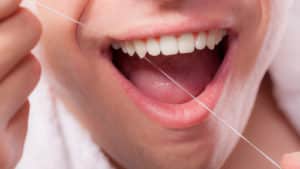 Did you know that a study from the Centers for Disease Control shows that half of adults over the age of 35 suffer from some stage of periodontal disease? Without treatment, gum disease can progressively worsen until the stability of your teeth become threatened. How do you prevent gum disease? What steps can you take to protect your smile?
Did you know that a study from the Centers for Disease Control shows that half of adults over the age of 35 suffer from some stage of periodontal disease? Without treatment, gum disease can progressively worsen until the stability of your teeth become threatened. How do you prevent gum disease? What steps can you take to protect your smile?
Frequently Asked Questions About Preventing Gum Disease
Question: What are risk factors for periodontal disease?
Answer: A number of different factors can increase your risk of developing gum disease, including hormonal fluctuations, a family history of periodontal disease, and poor oral hygiene (which coats the teeth in plaque, causing gingivitis). Periodontal disease has also been linked to heart disease and diabetes.
Question: What warning signs should I be aware of?
Answer: You should be aware of any changes to your smile, such as redness in your gums or soreness. If you experience bleeding when you brush or floss, chronic bad breath, or notice receding gums, you should talk to your dentist. In the advanced stages, periodontal disease can also cause teeth to feel loose as the connective tissue between the teeth and gums break down.
Question: Does brushing and flossing help prevent the disease?
Answer: Yes. When you brush your teeth twice a day and floss once a day you reduce the severity of plaque buildup. Doing so limits the risk of gum inflammation, protecting your smile from the disease.
Question: Should I have my teeth cleaned?
Answer: Yes! While brushing and flossing are important, a dental cleaning is the only way to completely remove plaque buildup from your teeth. You should have your teeth cleaned by your dentist or hygienist once every six months. If you have any questions about gum disease prevention, or if you would like to schedule a cleaning, then contact our office today.



